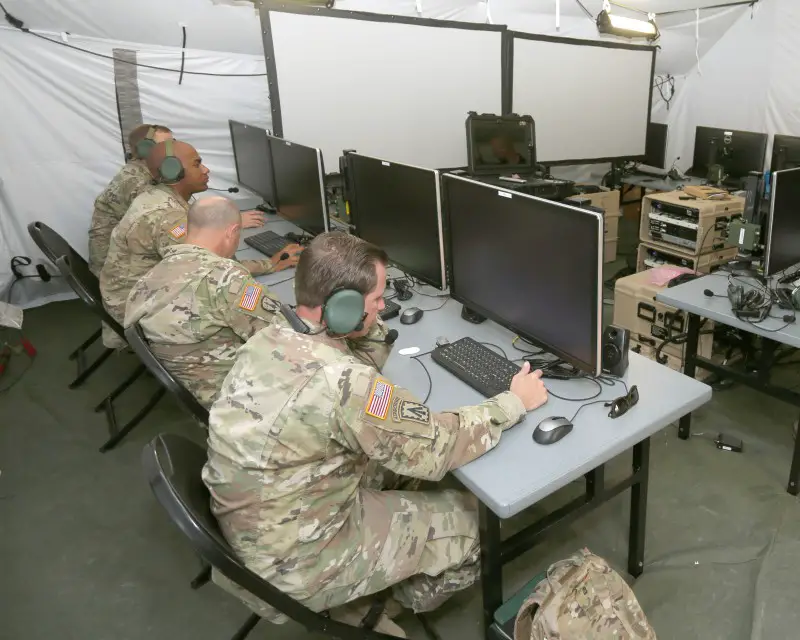The U.S. Army conducted a successful intercept test today with the Integrated Air and Missile Defense (IAMD) Battle Command System (IBCS). The test was executed by the IAMD Project Office and Soldiers of the 3-6 Air and Missile Defense Test Detachment (3-6 AMDTD).
Preliminary findings indicate that the planned flight test objectives were achieved and the targets were successfully intercepted. The Army will conduct further analysis in order to validate system models and inform future predictions for system capability.
The test, designated IAMD Flight Test 5 (FT-5), was the final developmental flight test prior to entering operational testing in 2020. IAMD FT-5 included multiple sensors contributing to a composite target track from the Army, as well as joint sensors from the Air Force and Marine Corps. The successful engagement was conducted using PATRIOT Advanced Capability-2 (PAC-2) missiles against two cruise missile surrogates.
“We are extremely proud of the Soldiers who executed the test today and the performance of the system,” said Col. Phil Rottenborn, IAMD Project Manager. “This test marks the first time Soldiers conducted a live engagement using IBCS in a developmental test, and demonstrates Soldier and system readiness for transition to the operational test phase.”
Army Integrated Air and Missile Defense (AIAMD) integrates current and future Air and Missile Defense (AMD) sensors and weapons into a common integrated fire control capability with a distributed “plug-and-fight” network architecture. IBCS is the fire control and operational-center capability that provides greater defense effectiveness than the current single sensor fire unit systems.
Soldiers from the 3-6 AMDTD executed the engagement using the IBCS, in addition to operating the PATRIOT and Sentinel radars and PATRIOT launchers. Marines from the Marine Air Control Squadron 24 (MACS 24) operated the TPS-59 Radar and served as the Link-16 Higher Echelon Unit (HEU) during the flight test, providing early warning and engagement decision to IBCS. Two Air Force F-35s also participated, contributing to the IBCS composite track.
Flight Test 5 was the fifth flight test for the IAMD Project Office, which is responsible for modernizing the air-defense mission-command systems and facilitating the concept of “any sensor, best shooter.”
“Flight Test 5 is truly a large step forward in the implementation of IAMD with the joint community supporting Multi-Domain Operations” said CW2 Phil Holman, who participated in the engagement from the 3-6 AMDTD. “It is an exceptional honor to be part of a team of outstanding Soldiers and expertly knowledgeable civilians from multiple agencies.”













